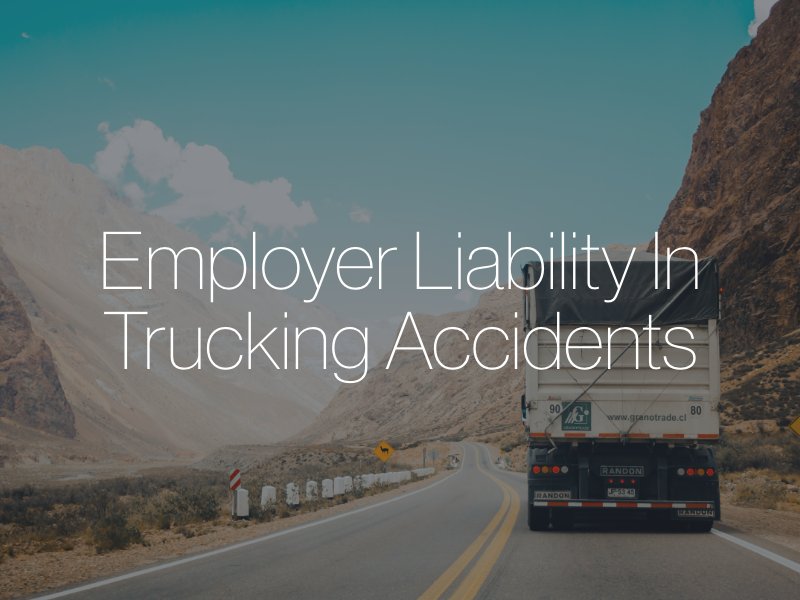Accidents involving large commercial trucks are often caused by the negligent actions of truck drivers working for large employers. Carelessness, fatigue, violating safe practices, operating under the influence of alcohol or drugs or while distracted by a phone or another device are frequent causes of serious injury collisions. Other scenarios include:
- Failing to abide by federal regulations
- Failing to follow FMCSA hours of service requirements
- Operating their vehicle too fast for conditions
- Failing to follow basic traffic laws
- Allowing the vehicle to be improperly loaded or overloaded
When a truck driver’s negligence causes a crash and leads to injuries or financial losses, their employer is ultimately liable for the incident. So long as a truck driver was operating within the scope of their duties when their negligence caused a crash, their employer will be liable and be required to pay compensation to the victims.

In some circumstances, trucking companies themselves are directly liable for a crash that causes injuries or property damage. They can be held responsible for a crash if they:
- Fail to conduct background checks on new or prospective drivers
- Fail to ensure that drivers are adequately trained
- Fail to regularly inspect or maintain the vehicles
- Encourage drivers to disregard hours of service requirements
- Encourage drivers to overload the vehicle
Determining Negligence in a Truck Accident Case
If you have been injured in an accident caused by the actions of a truck driver or trucking company, it is crucial to work with a delivery truck accident attorney as soon as possible. You and your legal team must prove that the actions of the driver or company actually caused the incident. While this may seem fairly obvious at the time the crash occurs, the reality is that trucking companies will try their best to shift or avoid blame You need a trucking accident team that can conduct a full investigation into the incident, gather the evidence needed to prove liability, and stand up to the wrongdoers, their insurers and their lawyers. both in and out of the courtroom.


